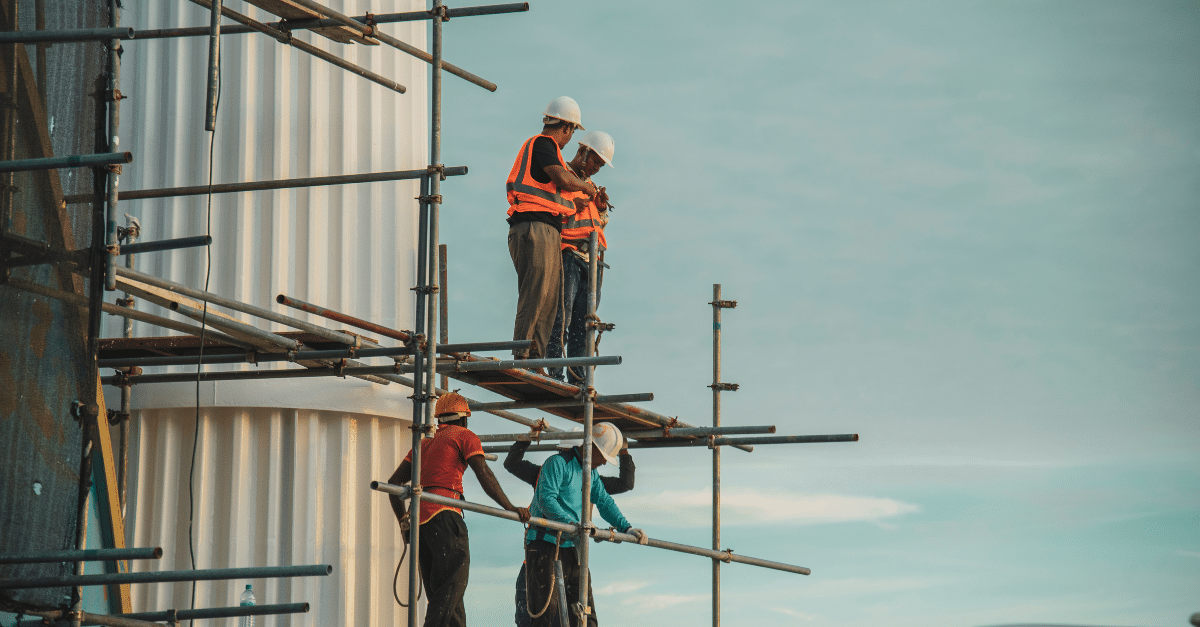The construction industry is facing challenging times. Not long ago, the oft-repeated phrase in the industry was to “wait until 2025.” The general expectation in the industry then was that rapidly declining interest rates would reinvigorate the industry. The mood has since deeply soured and many in the industry are now saying “just get through 2025.” Despite rapidly declining interest rates, the U.S. tariffs have introduced so much uncertainty into the market that fewer projects are proceeding. Some have been cancelled altogether. Many now say that this is the most challenging market they have seen since 2008. Some say it is the worst in their lifetimes. What can be done? There is much that is unfortunately out of our hands. However, there are some things that industry participants can do to protect themselves in these challenging times.
Steps that construction industry participants can take to ensure that they get through 2025 might include:
- Watch costs and spending. In a strong market, companies can lose sight of the importance of strong cost management and spending controls. As the market changes, those companies with poor cost controls and loose spending habits are often the first to fail. Start treating each dollar as though it is critical to the success or failure of your business.
- Carefully watch your inventory purchasing and closely follow inventory pricing trends. What commodities will do in this market is anyone’s guess. The best you can do is ensure that you are watching your inventory closely and ensuring you are reducing exposure to both escalation and the potential for a general fall in the price of input commodities.
- Determine where your supply chain is at greatest risk for tariff related cost escalation. Do what you can to explore reasonable alternatives that allow you to minimize that risk.
- Consider carefully whether now is the best time to invest in expansion. On the one hand, it is critical to avoid spending money that would place you in a weaker financial position in the event of a long downturn. A strong balance sheet is what will carry you through adversity. On the other hand, downturns can create some of the most exciting expansion opportunities, as your competitors struggle and the overall playing field shifts.
- Consider contractual protections. Before you execute new contracts, consider how the tariffs and a market downturn may impact the agreement and whether you can add language to protect yourself. For example, in the last downturn many owners sought to renegotiate executed construction contracts to reflect new market pricing. Your contracts should include clauses now that directly address what happens if market pricing changes. You should carefully consider all of your tariff risks and consider what language you should include in your contracts to protect yourself.
- Closely monitor pricing trends on projects you are bidding. Many contractors are slow to react to changing realities. If pricing begins to tighten, ensure your pricing is immediately reflective of the new reality. In a falling market, the longer you wait to fill your book the worse it is likely to get.
- Avoid financially weak or problematic customers. The wrong job with the wrong customer could mean the difference between success and failure in a challenging market. Only provide aggressive pricing to customers that have earned your trust.
- Chase accounts receivable. The assumption that a customer “always pays eventually” can be very dangerous in a changing market.
- Cut deadwood but protect your human assets. Examine your team early and objectively and determine whether your team is as efficient as it should be and make changes where necessary. At the same time, ensure that you secure enough work to keep the team you value employed through a downturn.
- Identify and secure cornerstone projects. In a good market, projects are plentiful. In a challenging market, you will want to ensure you have lined up a few key projects to carry you through.
- Solidify key relationships. The construction business is about relationships, and you want to ensure that the right people are on your side and will want to help you through adversity.
2025 has so far not been the year that many in the industry had hoped to see. However, with attention to the details and good business practices you can do your best to ensure that your company is in the best possible position to weather the storm.
This article originally appeared in CB Summer 2025. It was co-written with Norm Streu, associate counsel with the law firm Harper Grey and past chair of the Vancouver Regional Construction Association. Chris Hirst is a partner d leader of the Construction and Engineering practice group at the law firm Alexander Holburn LLP. Chris has been recognized in “Best Lawyers in Canada” since 2020 in Construction Law.



